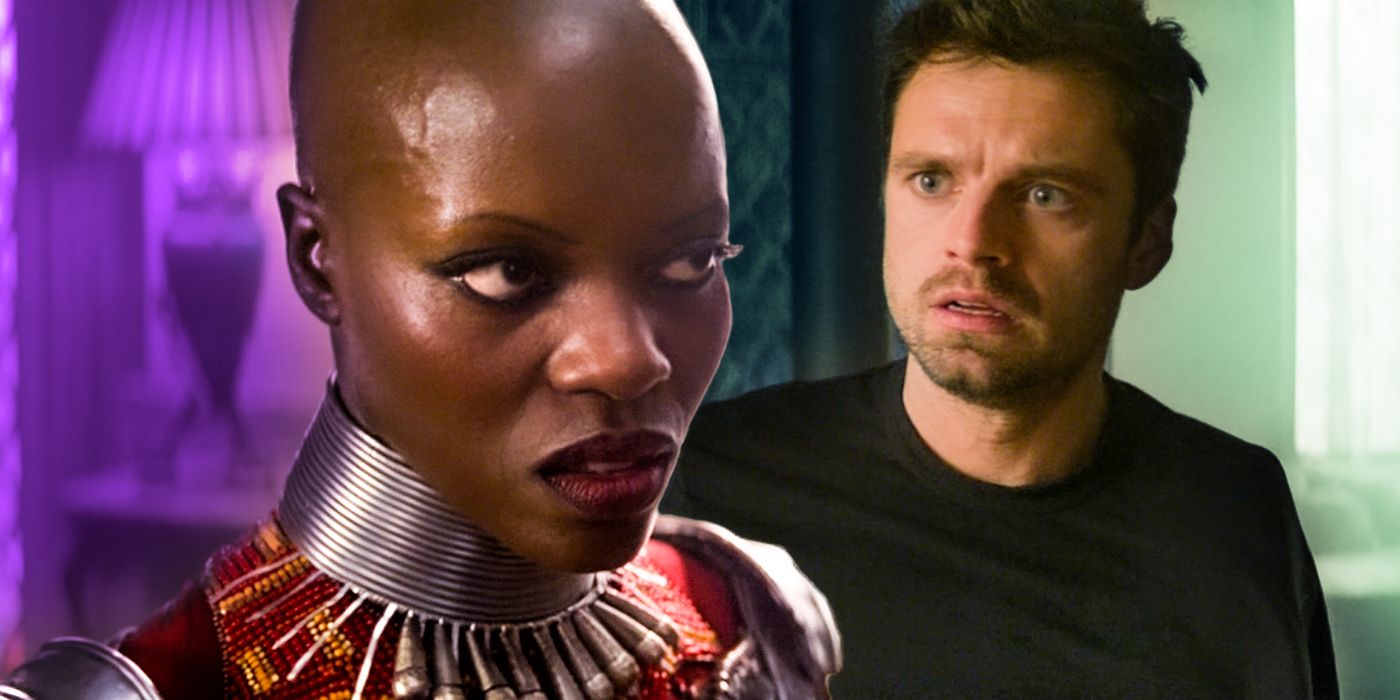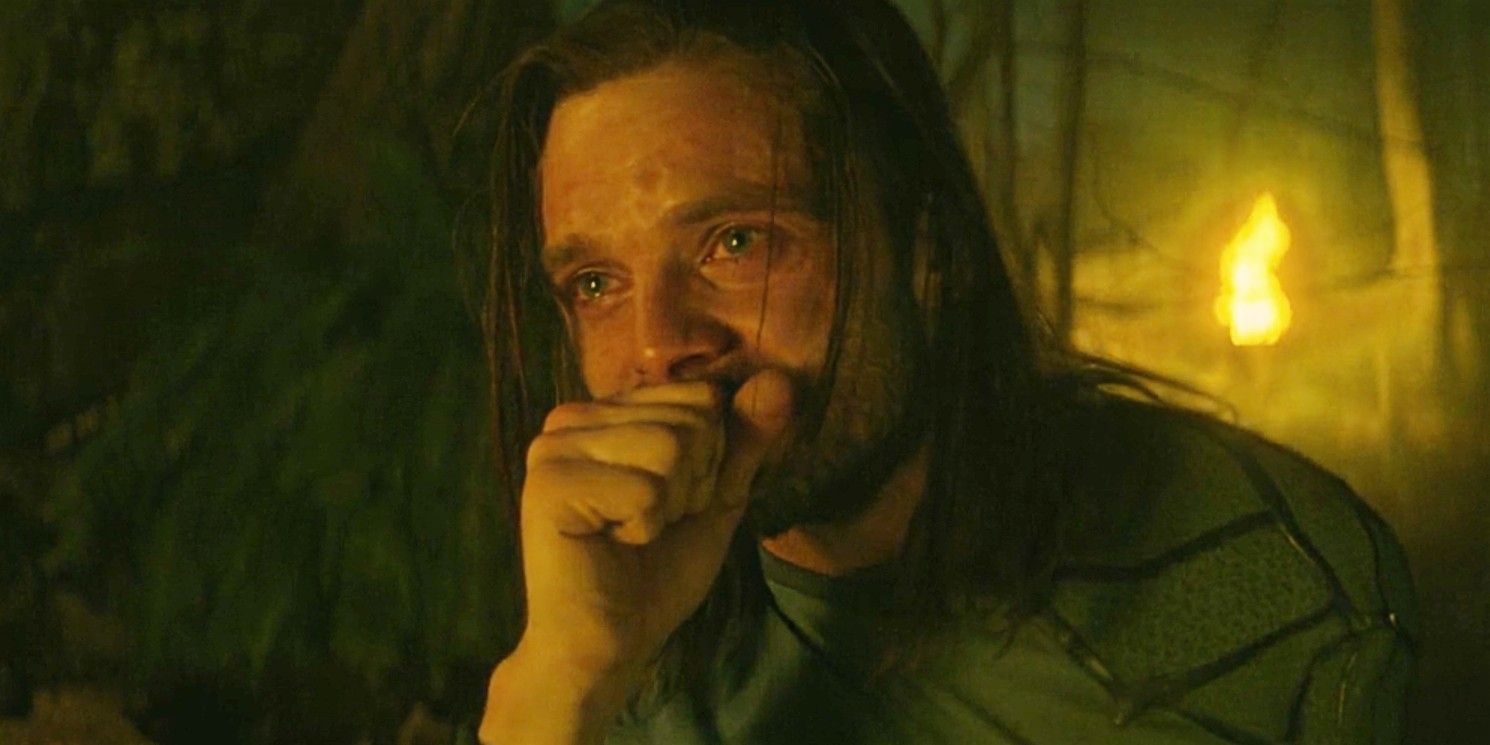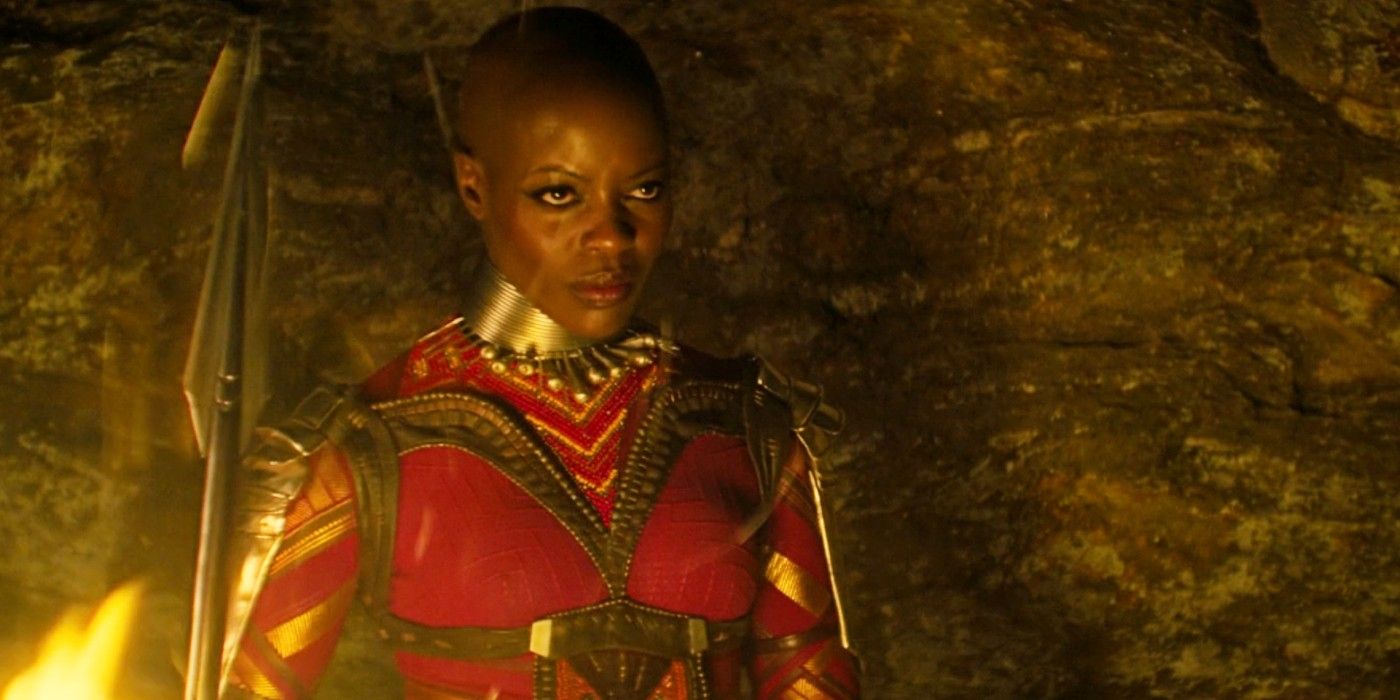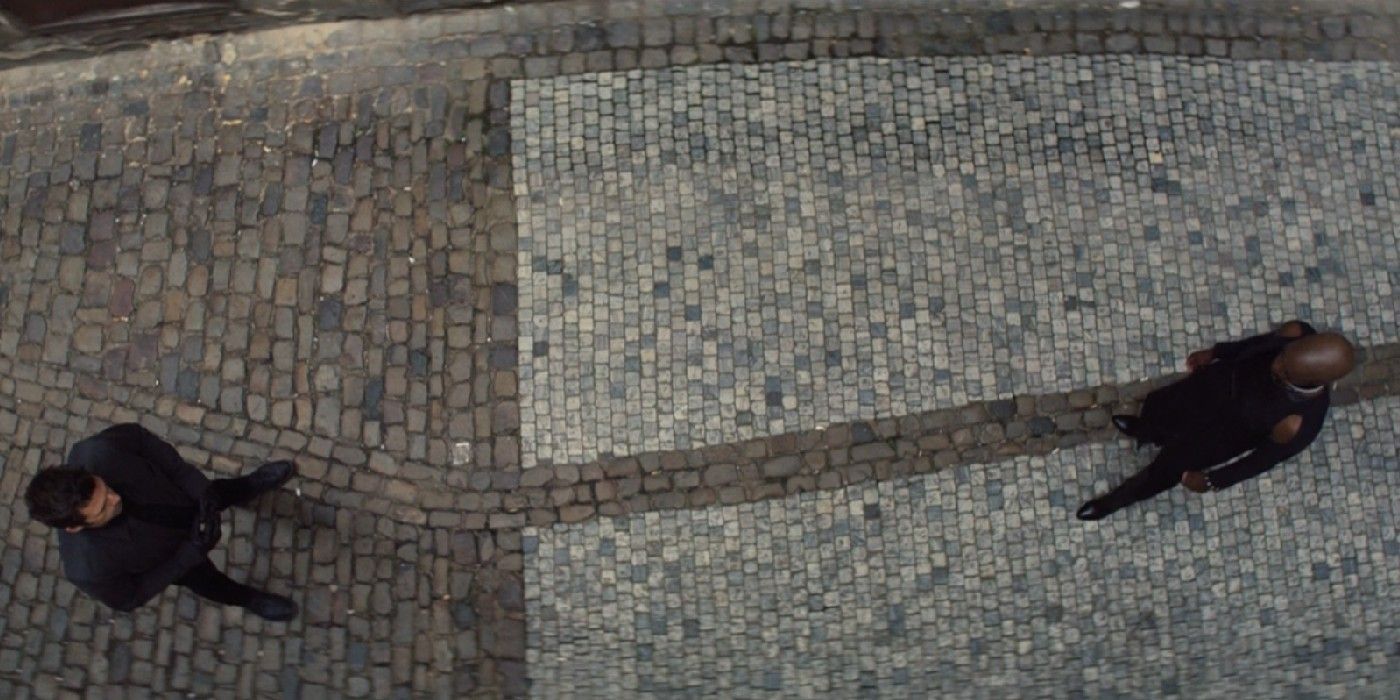
A pivotal moment between Bucky and Ayo in The Falcon and the Winter Soldier is dividing Marvel fans - but were the Wakandans right to include a failsafe in the Winter Soldier's arm? In episode 4, "The Whole World is Watching," the Dora Milaje arrive in Latvia after learning that Baron Zemo, who murdered Wakanda's King T'Chaka in Captain America: Civil War, has been freed from prison. To make matters worse, the person who helped him escape was Bucky Barnes, who has Wakanda to thank for freeing him from his Winter Soldier brainwashing and giving him a new metal arm.
The Dora Milaje's demand that Zemo be handed over leads to a skirmish, during which Ayo quickly ends her fight with Bucky by using a failsafe to deactivate and detach his metal arm. Bucky looks shocked and hurt by this, particularly since the episode's opening flashback showed that Ayo worked closely with him during his rehabilitation. When Sam asks if he knew the Wakandans were able to shut down his arm, Bucky says that he didn't.
The scene has generated heated discussion online. On one side is the argument that the arm's failsafe both betrays Bucky's trust in the Wakandans, and sends the message that they never actually trusted him even after he was freed from his brainwashing. Others have countered this by pointing out that Bucky betrayed the Wakandans first by freeing Zemo, and that the arm was never really his property since it's made from Wakandan vibranium, using Wakandan technology. Here's a closer look at both sides of the debate, and why both Bucky and Ayo's history in the Marvel Cinematic Universe makes the situation so complicated.

The Falcon and the Winter Soldier might be a comic book TV show featuring mechanical wings and super-soldiers, but it's styled as a political thriller in the same vein as Captain America: The Winter Soldier. Because of its relatively grounded nature, the scene between Ayo and Bucky is tangled up with real-world issues of race, geopolitics and disability. Some criticisms of the Wakandans' failsafe and Ayo choosing to use it are centered on the point that, although he's a super-soldier, Bucky is also disabled and his metal arm is as much an assistive device as it is a weapon. His arm being suddenly removed could be compared to taking someone's hearing aid or kicking a crutch out from under them. For Marvel fans who rely on assistive technology in their day-to-day life, the removal of the arm and Bucky's reaction to losing it may have been understandably upsetting.
Within the context of the MCU, objections to Ayo's actions in The Falcon and the Winter Soldier focus on Bucky's unique history and his relationship with the Wakandans. After decades spent being used as a killing machine by HYDRA, Bucky has been left with a fear of losing control of his own mind and body. As actor and director Stephen Sean Ford pointed out in a tweet that initially sparked the debate, Bucky has "spent years trying to finally reclaim his autonomy, only to be undermined in an instant by those who helped." It was Ayo who, at the start of the episode, told Bucky that he was finally free. Bucky placed a great deal of trust in her when she recited the Winter Soldier activation words to him, and may have assumed that this trust was mutual. Learning about the failsafe in his arm, therefore, would hit right at the bedrock upon which his recovery was built.

The obvious counter to the argument above is that the Wakandans don't owe Bucky anything - in fact, he owes an enormous debt of gratitude to them. Wakanda offered Bucky a safe haven after the events of Captain America: Civil War, and Shuri figured out exactly what HYDRA had done to him and how to free him from their brainwashing. All of this was done altruistically, with no expectation of repayment, and in the spirit of T'Chaka's pledge that Wakanda would "fight to improve the world we wish to join." For Bucky to take the gift given to him by the Wakandans and use it to free and then defend the man who murdered their king is a serious betrayal. Moreover, the fact that Bucky freed Zemo and then fought the Dora Milaje to stop them from taking him proves that the Wakandans were right not to fully trust him.
Wakanda also has its own reasons for including a failsafe in the arm that have nothing to do with Bucky. In Captain America: Civil War, King T'Chaka told the gathered members of the United Nations that Ultron's attack on Sokovia had motivated him to use Wakanda's resources to help the rest of the world. "When stolen Wakandan vibranium was used to make a terrible weapon," T'Chaka said, "we in Wakanda were forced to question our legacy." Vibranium being taken out of Wakanda and used to inflict great harm was a pivotal turning point in the nation's history, and something that T'Chaka never wanted to happen again. With that in mind, it was an enormous gesture of trust for the Wakandans to give Bucky his vibranium arm at all. To unleash another vibranium weapon into the world without any means of shutting it down, though, would have been a betrayal of King T'Chaka's final wishes.

It seems clear that the Wakandans have the moral and rational high ground for including a failsafe in Bucky's arm. Vibranium weapons have the potential to be very dangerous, and not everyone can be trusted to wield them (as John Walker's actions at the end of the episode prove). After the destruction wrought by Ultron, Wakanda feels it has a duty to the world to ensure that vibranium is not used for harm. And given Bucky's history as HYDRA's most deadly assassin, it would frankly have been irresponsible to let him walk away with the arm if it didn't have some kind of failsafe.
The conflict in The Falcon and the Winter Soldier isn't really between right or wrong; it's between a macro and a micro viewpoint. As critic Scott Mendelson argued, "It's okay to believe that the Wakandans were justified in putting a failsafe in Bucky's mechanical arm and feel bad for Bucky due to his in-the-moment feelings of betrayal." The opening scene of "The Whole World is Watching" established just how important Ayo was to Bucky's recovery, so it's understandable that he would have come to see her as his friend while forgetting her greater obligations as a soldier. The sudden loss of his arm served as a blunt reminder that Ayo is loyal to Wakanda first, and above all.
Ayo's own feeling of betrayal isn't just a matter of duty. As she reminds Bucky at the start of the episode, she and the Dora Milaje were especially chosen and trained for the sole purpose of protecting the King of Wakanda, so T'Chaka being killed on her watch was devastating. When Bucky tries to say that he understands, Ayo interjects that he understands "very little, if anything, of our loss and our shame." Marvel fans may be more inclined to sympathize with Bucky, since he is one of the titular characters of The Falcon and the Winter Soldier, but Ayo has her own pain, grief and guilt over the death of King T'Chaka, and the return of Zemo has reopened that wound.
In short, Bucky's feelings of betrayal are undoubtedly genuine, but that doesn't actually mean that he was betrayed. It just means that when hit with the sudden loss of a prosthetic limb, he wasn't thinking about the big picture of vibranium's history on the global stage, or even about Ayo's feelings. Bucky's response was purely instinctive and emotional, and makes sense in the context of his character arc within the MCU. It remains to be seen whether the last two episodes of The Falcon and the Winter Soldier will have time to untangle the knot of emotions at the heart of Bucky and Ayo's conflict, while also wrapping up the show's other storylines.
from ScreenRant - Feed https://ift.tt/3sgtmeP


0 Comments